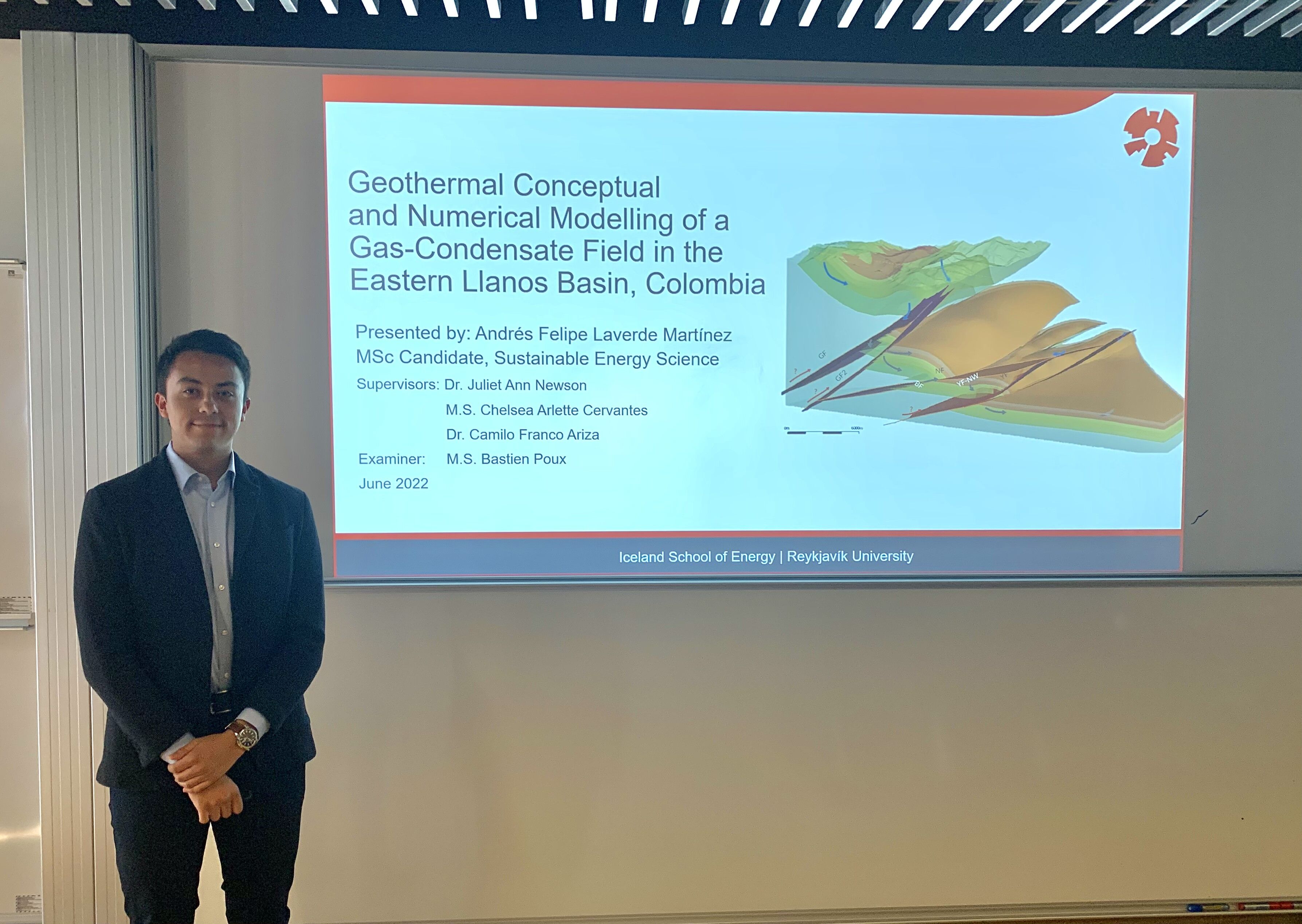MSc Thesis: Geothermal Conceptual and Numerical Modelling of a Gas-Condensate Field in the Eastern Llanos Basin, Colombia
REYKJAVIK, May 27 - MSc in Sustainable Energy candidate, Andrés Felipe Laverde Martínez, successfully defended his master's thesis where he investigates Geothermal Conceptual and Numerical Modelling of a Gas-Condensate Field in the Eastern Llanos Basin, Colombia. Andrés's work was supervised by Dr. Juliet Ann Newson from Reykjavik University, Dr. Camilo Franco Ariza from Universidad Nacional de Colombia, and Chelsea Cervantes from Reykjavik Geothermal. Examination was conducted by Bastien Poux from Aetna Geothermal Limited.

Andrés first introduces his project, which presents three-dimensional conceptual and numerical flow models of a gas condensate field in the foothills region of the Eastern Llanos Basin in Colombia. Andrés highlights the fact that the Eastern Llanos Basin has been the subject of diverse studies for hydrocarbon exploitation. Over the past decade, this region has been assessed for its geothermal potential in currently exploited oil & gas fields. He notes that a gas-condensate field located in the foothills of the basin represents a promising opportunity to produce geothermal energy. His conceptual and numerical models integrate geological, geophysical, geochemical and well data to enhance the understanding of the geothermal system in a sedimentary environment. The Leapfrog Geothermal model shows that the gas-condensate field presents a structurally complex architecture, where hydrocarbons and water accumulate in a relatively permeable reservoir. Andrés then highlights the well data, which exhibit a constant geothermal gradient, indicating conductive heat transfer.
Based on geochemical data and hydrological analyses, Andrés identifies that the meteoric recharge occurs in the Andean orogenic belt and fluid flows from NW to SE. He develops TOUGH2 numerical simulations to generate a natural state model and geothermal production scenarios, which provide an estimation of water extraction in the field. The thermal and hydraulic parameters were extracted from published experimental and well data. In order to simplify this first geothermal model, Andrés reduces the number of parameters, and assumes that the field is completely saturated with water. The natural state model temperature field is concordant with measured well data and simulated mass flow direction confirm expected patterns. His production scenarios demonstrate that it is possible to extract water at more than 90 °C without thermal breakthrough during the 30 years simulation. Andrés concludes by showing thermal power calculations yielding two optimistic scenarios with more than 30 MWℎ of heat production, and a conservative scenario with approximately 6 MWℎ. He indicates the conservative scenario provides a better approach to reality with current water production. He wraps up his defense by highlighting the fact that this project presents the basis for further studies on geothermal development in actively exploited hydrocarbon fields.
Congratulations Andrés on an excellent thesis defense!
